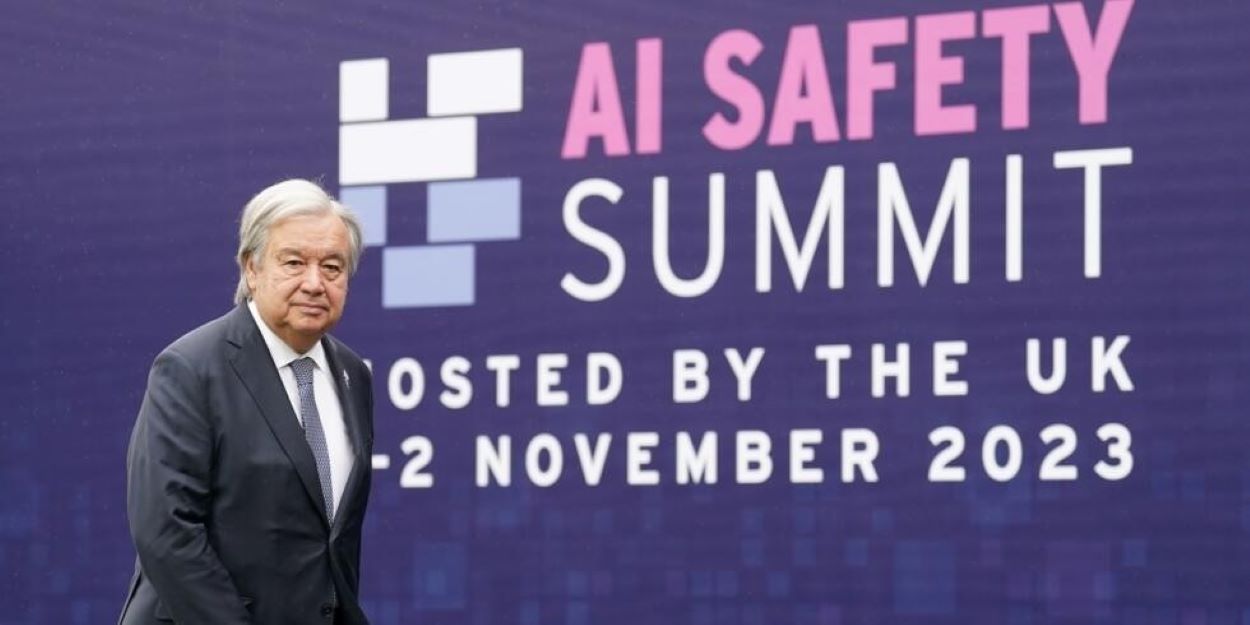UN Secretary-General Antonio Guterres underscored the urgency of a “united, sustained, global response” to the potential challenges of artificial intelligence (AI) at the inaugural AI Safety Summit at Bletchley Park.
The summit, attracting representatives from G7, EU countries, and tech giants like OpenAI and Google DeepMind, culminated in a pivotal agreement on safety testing for advanced AI models. Highlighting potential AI repercussions on jobs, culture, and global affairs, Guterres stressed the imperative of a comprehensive global strategy incorporating multilateralism and inclusive stakeholder participation.
Key Announcements and Commitments
British Prime Minister Rishi Sunak unveiled the appointment of prominent AI expert Yoshua Bengio to helm a team tasked with generating a foundational report on AI safety. He accentuated the role of collaboration in harnessing AI’s potential for humanity’s benefit.
The event, graced by influential personalities including Elon Musk, ended with a resolve to organize subsequent AI safety summits in South Korea and France. Amid AI concerns, including potential job displacements and cybersecurity threats, international consensus gravitates toward synchronized efforts to promote AI’s safe and ethical development.
London and Washington recently announced the inception of specialized institutes dedicated to exploring AI’s implications and formulating strategies to address associated risks. US VP Harris spoke about initiatives to differentiate genuine government digital content from AI-rendered content, ensuring AI’s non-discriminatory nature. UK Foreign Secretary James Cleverly emphasized the need for swift, coordinated actions to keep pace with rapid technological evolution.
Echoing the sentiment, Musk termed the summit “timely” and identified AI as a pressing existential threat. In the backdrop of these discussions, G7 members consented to a non-binding code of conduct for companies venturing into high-level AI development. Concurrently, European ministers advocated for a balanced, innovation-centric approach to AI regulation, emphasizing increased investments to rival the US and China’s technological might.






